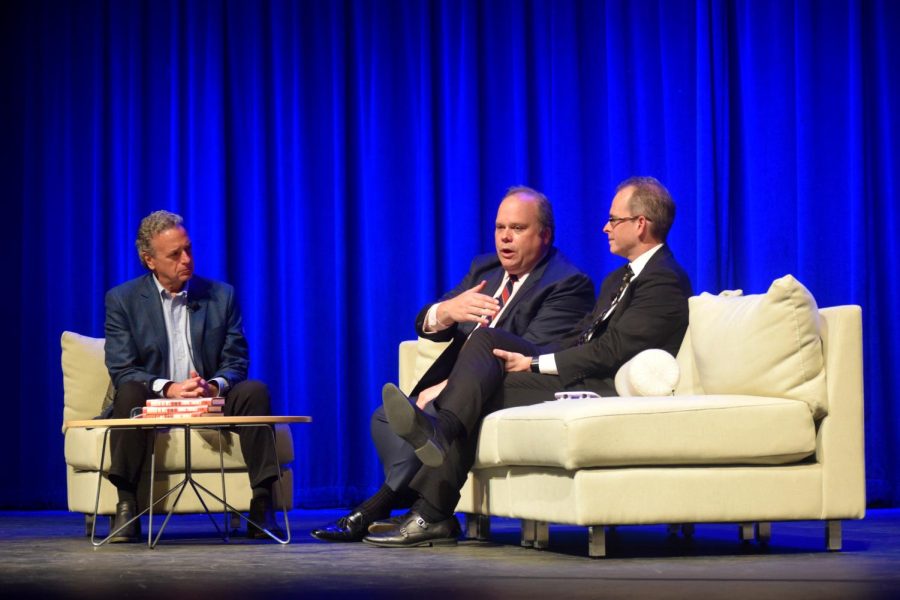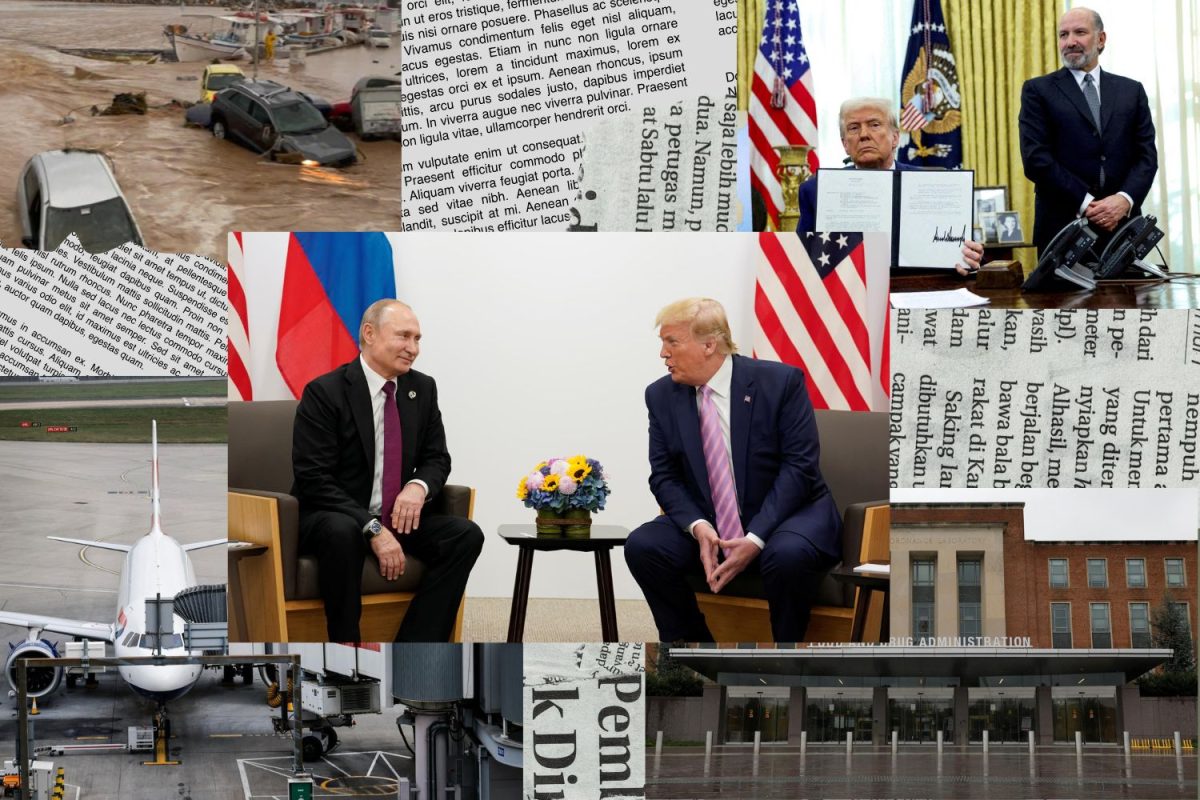The Vanderbilt Project on Unity & American Democracy hosted an Oct. 19 panel discussion at Langford Auditorium, featuring Chris Stirewalt, Senior Fellow at the American Enterprise Institute and former political editor at Fox News and Josh Clinton, the Senior Election Analyst at NBC News, co-director of the Vanderbilt Poll and a professor in the political science department. Former NBC correspondent and anchor John Seigenthaler moderated the panel, which focused on media outlets’ projections of election results, shifts in content production and public trust in media, topics deemed especially important in light of the Nov. 8 midterm elections.
Executive director of the Vanderbilt Project on Unity & American Democracy Gray Sassar said that the Unity Project held this panel to “demystify the process” of making election announcements.
“[The Unity Project] wanted to shine a light on the role that the news media plays during election cycles, and the behind-the-scenes work done by cable news decision desks when making election night calls.” Sasser said. “Professor Clinton and Mr. Stirewalt…demonstrated that – no matter the political slant of the network – the off-camera number crunching is subject to rigorous standards across the industry and if the media does its job right, it can be a critical tool in helping to rebuild Americans’ confidence in the results of our elections going forward.”
According to Clinton, one of the media’s most critical roles on election night is reporting certified vote counts and identifying winning candidates in each state in real-time. He explained that this process is highly meticulous, requiring a thorough analysis of the many moving components including early vote returns, changes in state laws, voter registration numbers and polling data.
“All the election administration is on a county-by-county level, so you really need to know all those details,” Clinton said.
Stirewalt expressed that audiences want winners of elections to be declared as early as possible. Per Stirewalt, the media is best suited to fulfill this function compared to the government which would take several more weeks to declare a winner due to the necessary legal procedures involved.
“What is a reasonable amount of time for Americans to wait to find out the winner of an election?” Stirewalt asked. “We won’t even wait three minutes for microwaved popcorn to finish.”
Clinton underscored the media’s importance in this role, adding that news channels create a system of accountability, instead of allowing politicians to announce winners arbitrarily.
“On election night, what’s going on is something quite different [from usual news coverage] because the media is trying to be an umpire, calling balls and strikes, looking at the votes coming in and getting it right,” Clinton said.
Stirewalt also said that the type of content broadcasted by media networks has shifted over the years. Stirewalt explained that his role as a member of Fox News’ 2020 decision desk in accurately reporting that Arizona’s electoral votes would go to President Biden, rather than former President Trump, played a major part in his firing at the network.
Stirewalt cited a “cresting wave of anger” among viewers in response to his reporting, indicating that it came to a point when he feared for his own safety after receiving death threats in 2016. He explained that audiences often push back on reporting that they do not want to hear.
“It’s great to call races if you’re calling races that the audience likes. If you’re giving the audience stuff that they don’t want to hear, it’s not good business,” Stirewalt stated. “There’s a joke in politics where you treat your political base as mushrooms: you keep them in the dark and you cover them with horse manure,” said Stirewalt.“The treatment of elections like sport and enjoyment is only okay if everyone understands it that way.”
The solution to this polarization, according to Stirewalt, is to remind journalists what they owe their audience. He outlined an “inside-out” fix, where journalists have to take the initiative to reject certain pieces.
“[Journalists have to say] I’m not writing that piece of clickbait crap because that’s how you get to January 6. You get there a little bit at a time because you tell flattering lies to your audience and you demonize the opposition because it sells, and it works,” Stirewalt said.
Stirewalt said that he fears that polarization in America is fueled by a lack of exposure to opposing beliefs.
“It is possible in America today to wake up and go to bed, and never hear anything that assaults your worldview,” stated Stirewalt. “But if you do that, it is a fundamental unloving act because you are teaching yourself to hate other Americans and hold them in contempt.”
Clinton said that he continues to have hope and believes that the nation can overcome the current state of political polarization and mistrust.
“We’ve been here in our history before. Sometimes people say that the end of days is here and there is no future for the country and that’s overly pessimistic,” Clinton said. “We’ve been in bad spots before when it comes to public trust in media, institutions and in politics but it’s something you have to work with and it’s not going to go away without work.”
Second-year student Connor Webb said that he enjoyed the discussion and it also raised important concerns over the current state of political affairs and its entanglement with the media.
“It was pretty fascinating to have two people from the inside talking about it. It’s also pretty scary that [Stirewalt] was getting death threats for stating something accurate….We’re really entering uncharted waters where people do not really believe in election results. I also did not see any solutions apart from an appeal to personally becoming better which I don’t know how or why the public would follow this,” Webb said.













